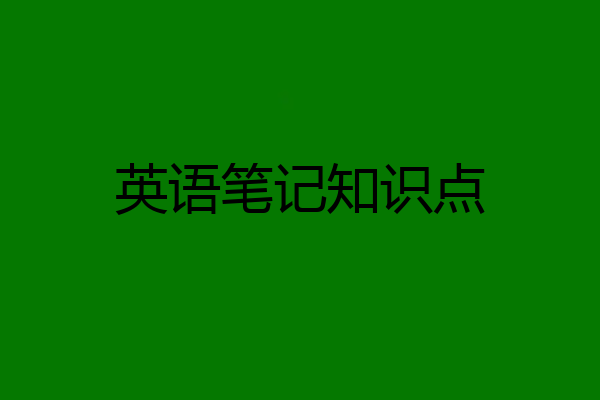
不计较的心
1. 将来进行时的句型结构
will/shall + be + 现在分词
shall用于第一人称I和we,will可用于各人称。而在美式英语中所有人称都用will。
2. 将来进行时的用法
(1). 表示在将来某一时间段内正在进行的动作。常与at 7 o’clock tonight, next year, by this time tomorrow等时间状语连用。有时没有明确的时间状语。
e. g. I will be studying in America next year. 我明年将在美国学习。
By this time tomorrow, I will be lying on the beach. 明天这个时间,我会正躺在沙滩上。
We shall be working in a big modern office building.
我们将在一个很大的现代化办公楼里工作。
(2) 表已经决定或安排好要发生的动作或事情。
e. g. We shall be meeting in Carrifour at 6 o’clock this afternoon.
我们定于今天下午六点在家乐福见面。
Tom will be seeing his friend off at the airport tomorrow.
汤姆明天将于机场为他的朋友送行。
(3) 预测将来会发生的事情,表将来的某种可能性。
e. g. If we keep working hard like this, we will be making a miracle.
如果我们继续这样努力工作的话,我们会创造奇迹的。
(4) 将来进行时除表示未来以外,还可表示亲切或委婉的语气。
e. g. I shall be thinking of you. 我会想你的。
Will you be staying here long? 你会在长时间呆这儿吗?
辨析:现在进行时/将来进行时
两者都可以用来表将来的动作。但现在进行时通常用于表示不远的将来的动作,而且有确
定的时间,而将来进行时则可以和确定的时间状语连用,也可以不用,既可以表示不远的将来的动作,也可以表示较远的将来的动作。
e. g. We are meeting him tomorrow/ We will be meeting him tomorrow.我们明天将会见到他。
We will be meeting him next year. 我们明年将会见到他。(注意此句不可用进行时,因为明年是较远的将来时间)
一、every与each的区别。
every
1)可单独使用 1)不可单独使用2)可做代名词、形容词
1)个人或物 2)仅作形容词3)着重“个别”3)着重“全体”,毫无例外4)用于两者或两者以上中的每一4)用于三者或三者以上每一个人或物 The teacher gave a toy to each child. Each ball has a different colour.
当我们说each child, each student或each teacher时,我们想到的是一个人的情况。而当我们说every child和every student时,我们想到的'是全体的情况,every的意思与all接近,表示他们都如此。 Every student loves the English teacher. = All students love the English teacher.
Every child likes playing. = All children like playing.
二、all和both的用法。
①all指三者以上,或不可数的东西。谓语动词既可以用单数,也可以用作复数。在句中作主语、表语、宾语、同位语和定语。
All of us like Mr Pope. 我们都喜欢Pope先生。(作主语) = We all like Mr Pope. (作同位语) All the water has been used up. (作主语)That's all for today. (作表语) Why not eat all (of) the fish? (作宾语) All the leaders are here. (作定语)
②both作代词。
a.与其他名词或代词并列出现,表示“两个都”。 Lucy and Lily both agree with us. They both passed on their sticks at the same time. How are your parents? They're both fine.
b.与“of +代词(或名词)”连用,表示“两者都”。 Both of them came to see Mary. Both of the books are very interesting.
c.单独使用,表示“两者(都)”。 Michael has two sons. Both are clever. I don't know which book is the better, I shall read both.
③both用作形容词,放在名词之前,修饰该名词,表示“两者都”。 Both his younger sisters are our classmates . There are tall trees on both sides of the street.
一、在进行时
1.概念:表示现阶段或说话时正在进行的动作及行为。
2.时间状语:Now, at this time, days, etc. look. listen
3.基本结构:主语+be +doing +其它
4.否定形式:主语+be +not +doing+其它
5.一般疑问句:把be动词放于句首。
6.例句:How are you feeling today?你今天感觉如何?
He is doing well in his lessons.在课上他表现得很好。
二、 过去进行时
1.概念:表示过去某段时间或某一时刻正在发生或进行的行为或动作。
2.时间状语:at this time yesterday, at that time或以when引导的谓语动词是一般过去时的时间状语等。
3.基本结构 主语+was/were +doing +其它
4.否定形式:主语+was/were + not +doing+其它
5.一般疑问句:把was或were放于句首。(第一个字母大写)
6.例句:At that time she was working in a PLA unit.那段时间她在人民解放军部队工作。


宝哥哥艺涵
知识是取之不尽,用之不竭的。只有限度地挖掘它,才能体会到学习的乐趣。任何一门学科的知识都需要大量的记忆和练习来巩固。虽然辛苦,但也伴随着快乐!下面是我给大家整理的一些初一英语的知识点,希望对大家有所帮助。
人教版七年级上册英语知识点
1、Unit 1 ——Unit 2
1) 问候语 :
Good morning/ afternoon/ evening.
How are you?---Just OK, thank you. How are you?---Not bad, thanks.
Hi! Hello!
How do you do?
2)道别用语:
Nice/ Glad to meet/ see you.(meet用于初次见面,see用于熟人间)
Nice to meet/ see you, too.
Goodbye. Byebye. Bye. See you (later/ tomorrow/ next time)! So long! Good night!
3)介绍人或者物的句型:This is...
4)Excuse me.与I'm sorry.的区别:
Excuse me.是要引起对方的注意,而I'm sorry.则是向对方道歉。
5)词组be from = come from
in English
6)当问句中问到this/ that时,回答要用it;问到these/ those时,要用they来回答。 例如: What's this in English?----It's an eraser.
What are those?----They are books.
7)对Thanks.的回答:That's OK./ You're welcome./ My pleasur.
8)look the same = have the same looks
give sth. to sb. = give sb. sth.
be like = look like
in the tree/ on the tree (树上结的、长出来的用on,否则用in)
in red(穿着红色的衣服)
in the desk(在空间范围之内)
in English(用英语)
help sb. do sth.
七年级下册英语知识点人教版2021
Unit 1 Can you play the guitar?
◆ 短语 归纳
1. play chess 下 国际象棋
2. play the guitar 弹吉他
3. speak English 说英语
4. English club 英语俱乐部
5. talk to 跟…说
6. play the violin 拉小提琴
7. play the piano 弹钢琴
8. play the drums 敲鼓
9. make friends 结交朋友
10. do kung fu 练 (中国) 功夫
11. tell stories 讲 故事
12. play games 做游戏
13. on the weekend/on weekends 在周末
◆用法集萃
1. play +棋类/球类 下……棋,打……球
2. play the +西洋乐器 弹/拉……乐器
3. be good at doing sth.= do well in doing sth. 擅长做某事
4. be good with sb. 和某人相处地好
5. need sb. to do sth. 需要某人做某事
6. can + 动词原形 能/会做某事
7. a little + 不可数名词 一点儿……
8. join the …club 加入…俱乐部
9. like to do sth. =love to do sth. 喜欢/喜爱做某事
初中 一年级英语 上册知识点 总结
Unit 1
词汇重点:
1. Good morning/ afternoon / evening 早上/下午/晚上好 Good night 晚安(晚上告别)
2. glad / nice to meet / see you 见到你很高兴 (回答也一样)
3. welcome to + 地点 欢迎来到…… (回答:Thank you 或者Thanks)
4.let’s + V(原) 让我们做……
5. stand up 起立 sit down 坐下
6. this is----- 这是…… (用于介绍第三者的用语)
7. How do you do ?你好 (回答也是:How do you do ? )
8. How are you ? 你好吗? Fine ,thank you .and you ? 很好;谢谢;你呢?
I’m OK / I’m fine , too . 我也很好。
9.see you = see you later = see you soon = good-bye 再见
10.excuse me 打扰一下;请问
11.I’m -----= my name is ---- 我是……
12. be from = come from 来自
13.in English 用英语
14.Can you spell it ? Yes / No 你能拼写它吗? 能/不能
15.That’s OK / That’s all right / You’re welcome / Not at all 不用谢
16. …… years old ……岁
17.telephone number 电话号码 QQ number QQ号码 ID number 身份证
18.the same (相同的) 反义词 是 different (不同的)
例: We are in the same grade, but we are in different classes.
初一英语知识点笔记相关 文章 :
★ 初一英语知识点总结笔记
★ 初一英语全册语法知识点汇总
★ 初一英语必备的知识点归纳
★ 初一英语必备知识点大总结
★ 初一必备的英语知识点归纳
★ 初一英语上册必备知识点归纳
★ 初一英语的主要知识点归纳
★ 初一英语知识点归纳
★ 初一英语必备语法知识点归纳
★ 初中英语重点知识笔记